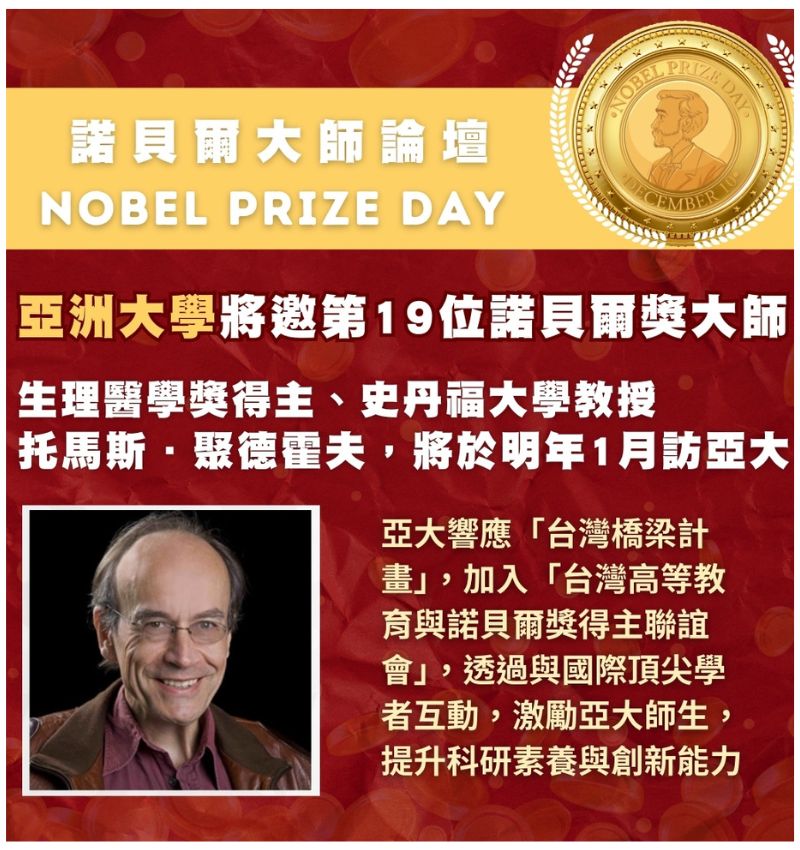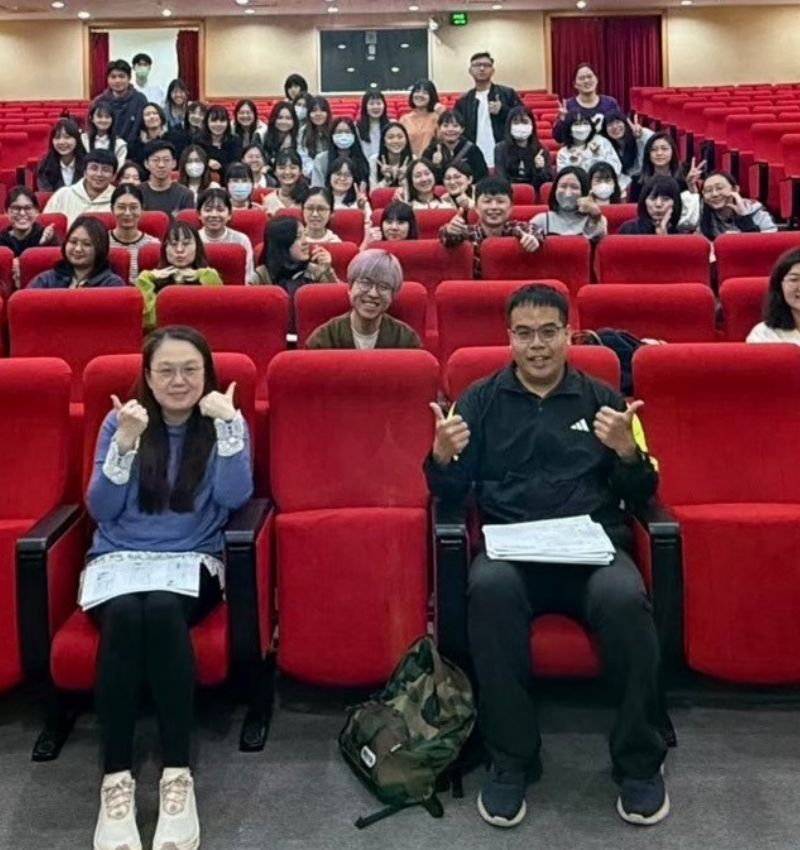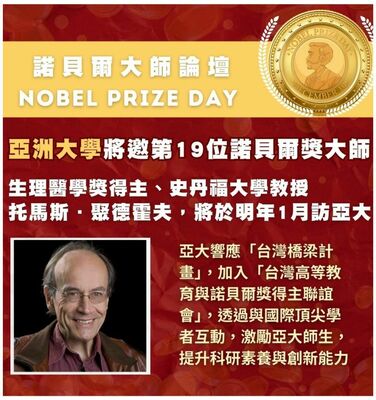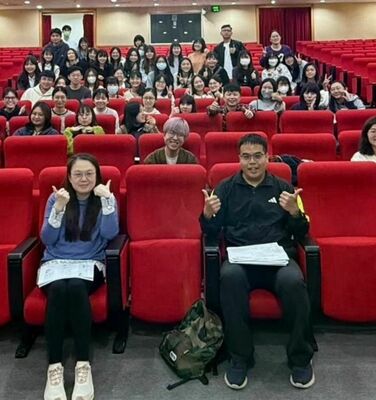|
|
2020 New Semester Kicks off with Annual Faculty Retreat
In preparation for the new academic year, Asia University held its annual faculty retreat from August 27 to August 28, 2020. Due to the rampage of COVID-19, some 200 professors and staff members showed up with masks for the event in the auditorium by keeping enough social distancing, and the other 500 faculty members joined the retreat on-line either in the office or at home for the sake of safety.
President Jeffrey J.P. Tsai made his opening remarks.
President Jeffrey J. P. Tsai announces that the focus of this year’s retreat is “Change for the better as a New Normal and AI-added Programs as a New Value.” He says that the retreat aims to foster a consensus on strengthening teaching and research, promoting the university’s social responsibility (USR), connecting academy with industry, expanding international cooperation, recruiting research talents, and incorporating AI knowledge and skills into interdisciplinary studies from six colleges.
Referring to the founder of the university, Dr. Changhai Tsai, President Jeffrey J. P. Tsai reminds all the participants that at Asia University change is the only constant and we change for the better. In this global age of fast changes, the only way to survive and succeed is to fast adapt oneself to the changing environment and to do the task with high execution and efficiency. In the past nineteen years, Asia University has stood out with excellent performance in various international world university rankings, and the school has been praised by domestic magazines as one of the most promising young comprehensive universities in Taiwan.
Dr. Changhai Tsai, Founder of Asia University, made his speech on AI and Precision Medicine
Envisioning that AI will play an important role in the future higher education, President Tsai tries to bring AI into all six colleges by developing new programs to accommodate students’ future education and skills in the global job market. This foresight has led to a curricular reform and pedagogical innovation which together lay the foundation of building up Asia University as a smart university. In these two years, AU students has won a lot of domestic and international awards in AI-related competitions. For instance, AU has won 20 different medals in the competition of Hackathon Taiwan Junior these two years. The University also launches a series of joint researches with Asia University Hospital in the field of precision medicine. So far some of the research findings have been applied to the innovative AI-assisted medical treatments, which include: How to use deep learning to evaluate the cervical vertebrae bone development in orthognathic surgery, how AI is applied to analyze and interpret a portable cardiotocography, how AI is used in a clinical physiology monitoring system, how exercise electrocardiogram can be used to predict a coronary artery disease, and how facial recognition skills can be used to improve the body temperature detection system.
More than 200 faculty members attended the retreat in the auditorium.
In his opening remarks, President Tsai also points out that in this age of global cooperation and competition in the higher education, internationalization on campus plays a key role in nurturing future students. Asia University sets up its goal to become an international comprehensive university and makes all efforts to pursue that goal. So far AU has 389 sister universities in 35 countries around the world. There are joint degree programs in collaboration with 22 universities from 11 countries, and each year more than 1000 international students come over to the university via various exchange programs. And Asia University has received the highest amount of study-abroad funding from the Ministry of Education this year and will send more than 440 students to do their internship or exchange overseas.
Dr. Changhai Tsai, the founder of the university, also gives a speech to all the participants. He emphasizes that the university, in the wake of COVID-19, should prepare to meet the upcoming changes and challenges. He repeatedly calls for everybody’s attention to build up good campus culture for sustainable development in the age of globalization. He asks all to resort to more effective strategies to recruit domestic and international students in the time of low birth-rate today. He also encourages the university to enhance its cooperation with Asia University Hospital and Asia University Museum of Modern Art and to explore more potential collaboration between industry and academy. Last but not least, Asia University should team up with China Medical University, share the resources to explore more joint researches, and expand the academic and social influences of both universities.
|
Dr. Chu, Director General, Department of Higher Education, Ministry of Education, delivered a special topic on the national policy on higher education. |
To update the recent development, the retreat invites three vice presidents to lecture on the current practices of teaching, research and AI learning on campus respectively. All the deans from six colleges also make their reports on the features of their colleges and share their plans and strategies for the future. Dr. Du, founder of Taiwan AI Labs, gives his keynote speech and shares his vision on how medical AI can reshape our world in the future. Three other speakers are also invited to give talks to the faculty members in the auditorium. Dr. Da-bin Hsieh, Deputy Minister of Science and Technology, talks about the national policy on science and technology. Dr. Chu, director general, Department of Higher Education, talks about the future directions of Taiwan’s higher education; Dr. Chen, chair professor of the Department of Finance, shares his vision on the innovative teaching and learning in the area of Fintech.
Finally, President Tsai concludes this year’s faculty retreat with a high hope for the bright future of Asia University with the collective efforts made by all the students and faculty members as well


































